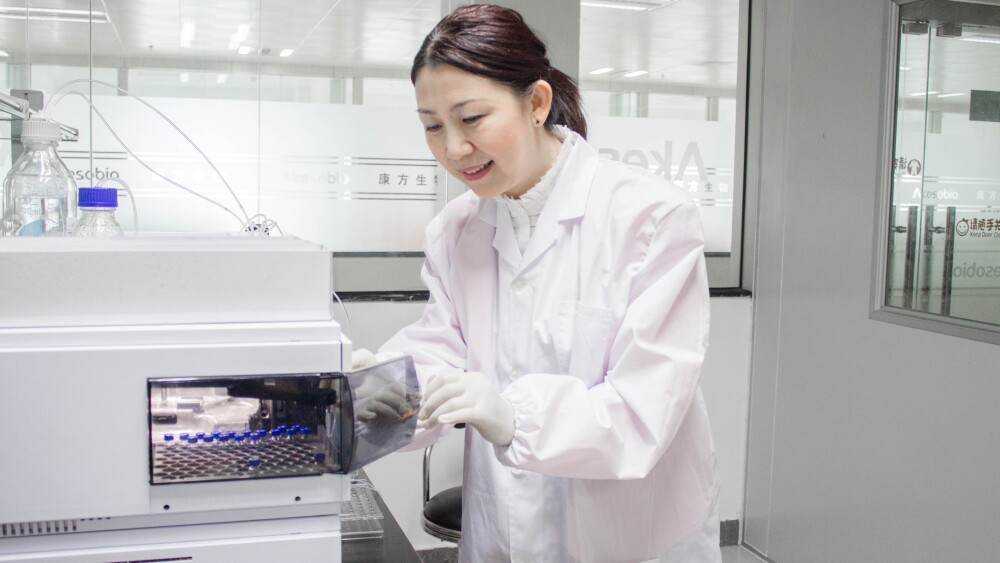2. This scientific workshop will bring together leading experts of infectious disease from all over the world, including ASEAN, China, Japan, South Korea and WHO, to share experiences in their understanding and management of HFMD. Together, they will explore ways to collaborate across the ASEAN region, and suggest strategies to tackle pressing problems as well as challenges relating to the prevention and treatment of the disease.
3. Associate Professor Tan Sze Wee, Deputy Executive Director of A*STAR’s Biomedical Research Council and the co-chair of this workshop, said, “At the present time, HFMD is predominately a problem for the ASEAN region so we understand more about the impact of the disease. This workshop creates a great opportunity for the ASEAN countries to forge a strong collaborative network and to explore possible solutions that will bring benefit not only to this region, but also in countries where this disease is prevalent.”
4. “Fortunately, this region is home to the academics and industrial partners who can provide the solutions through improved diagnostics, therapeutics and vaccines,” added Professor Jeremy Farrar, chair of the Singapore Infectious Diseases Initiative and the co-chair of this workshop. He said, “China, Malaysia, Taiwan, Singapore have all made investments in the development of vaccines and diagnostics, and are currently leading in this area.”
5. In Singapore, the Ministry of Health (MOH) funds the Singapore Infectious Diseases Initiative (SIDI), which is administered by NUS. Its purpose is to establish a consortium focussed on improving the health security of Singapore.
6. Professor Farrar, who is also an adjunct professor at the Yong Loo Lin School of Medicine, NUS, said, “It is crucial that we extend this support, provide regional leadership and solutions to this emerging problem. It would be a wonderful example of how investment in basic biomedical sciences in this region, allied to public health, clinicians and industrial partners can provide regional and global solutions to pressing public health needs,"
More on HFMD
7. According to WHO, outbreaks of Hand, Foot and Mouth (HFMD) occur every two to three years in different parts of the world, but in recent years these have occurred more frequently in Asia, including Singapore. HFMD mostly infects infants and young children under the age of five. Although rarely life-threatening, there have been more incidences of children with severe forms of the disease. There is currently no clinically approved vaccines or specific treatment for HFMD besides relief of symptoms.
8. HFMD can be transmitted from person to person through the faecal-oral or respiratory route. Common causative agents for HFMD are the coxsackieviruses type A (CA), echovirus (EC) and enterovirus 71 (EV71). Among these, Coxsackievirus A16 (CA16) and Enterovirus 71 (EV71) are most frequently detected. A range of clinical severity is seen, with most children having a mild illness, but some develop brain infections with associated heart complications which could be fatal. EV71 is the virus most commonly associated with the severe form of HFMD.
AGENCY FOR SCIENCE, TECHNOLOGY AND RESEARCH (A*STAR) & YONG LOO LIN SCHOOL OF MEDICINE NUS
Photos at 1st ASEAN HFMD Scientific Workshop in Biopolis (refer to PDF attachment)
For media queries, please contact:
Dr. Sarah Chang
Assistant Head, Corporate Communications
Agency for Science, Technology and Research (A*STAR)
Tel: (65) 6826 6442
Email: chang_kai_chen@a-star.edu.sg
Ms. Crystal MK
Senior Assistant Manager, Communications Office
National University Health System
Tel: (65) 6772 3986
Email: crystal_mk@nuhs.edu.sg
About the Agency for Science, Technology and Research (A*STAR)
The Agency for Science, Technology and Research (A*STAR) is the lead agency for fostering world-class scientific research and talent for a vibrant knowledge-based and innovation-driven Singapore. A*STAR oversees 14 biomedical sciences and physical sciences and engineering research institutes, and six consortia & centres, located in Biopolis and Fusionopolis as well as their immediate vicinity.
A*STAR supports Singapore's key economic clusters by providing intellectual, human and industrial capital to its partners in industry. It also supports extramural research in the universities, and with other local and international partners. For more information about A*STAR, please visit www.a-star.edu.sg
About the NUS Yong Loo Lin School of Medicine (YLLSoM)
Established in 1905, the NUS Yong Loo Lin School of Medicine was the first institution of higher learning in Singapore and the genesis of what would become the National University of Singapore. The School offers one of the finest undergraduate medical programs in the Asia Pacific region and commands international recognition and respect. In 2012, the School was ranked the top university in Asia for medicine and was placed 21st globally by Quacquarelli Symonds (QS).
From Academic Year 2012/13, the School will admit 300 students to its medical undergraduate degree programme annually. The School strives to fulfil its tripartite mission of providing excellent clinical care, training the next generation of healthcare professionals, and fostering research that will transform the practice of medicine. It plays a pivotal role in producing future leaders in healthcare delivery, discovery and public service as well as in Singapore’s Biomedical Sciences Initiative and Singapore Medicine, an initiative to further develop as a regional medical centre.
The School’s 16 departments in the basic sciences and clinical specialties work closely with the Alice Lee Centre for Nursing Studies and the Centre for Biomedical Ethics to ensure that teaching and research are aligned and relevant to Singapore’s healthcare needs.
For more information about the Yong Loo Lin School of Medicine, please visit http://medicine.nus.edu.sg/corporate/




